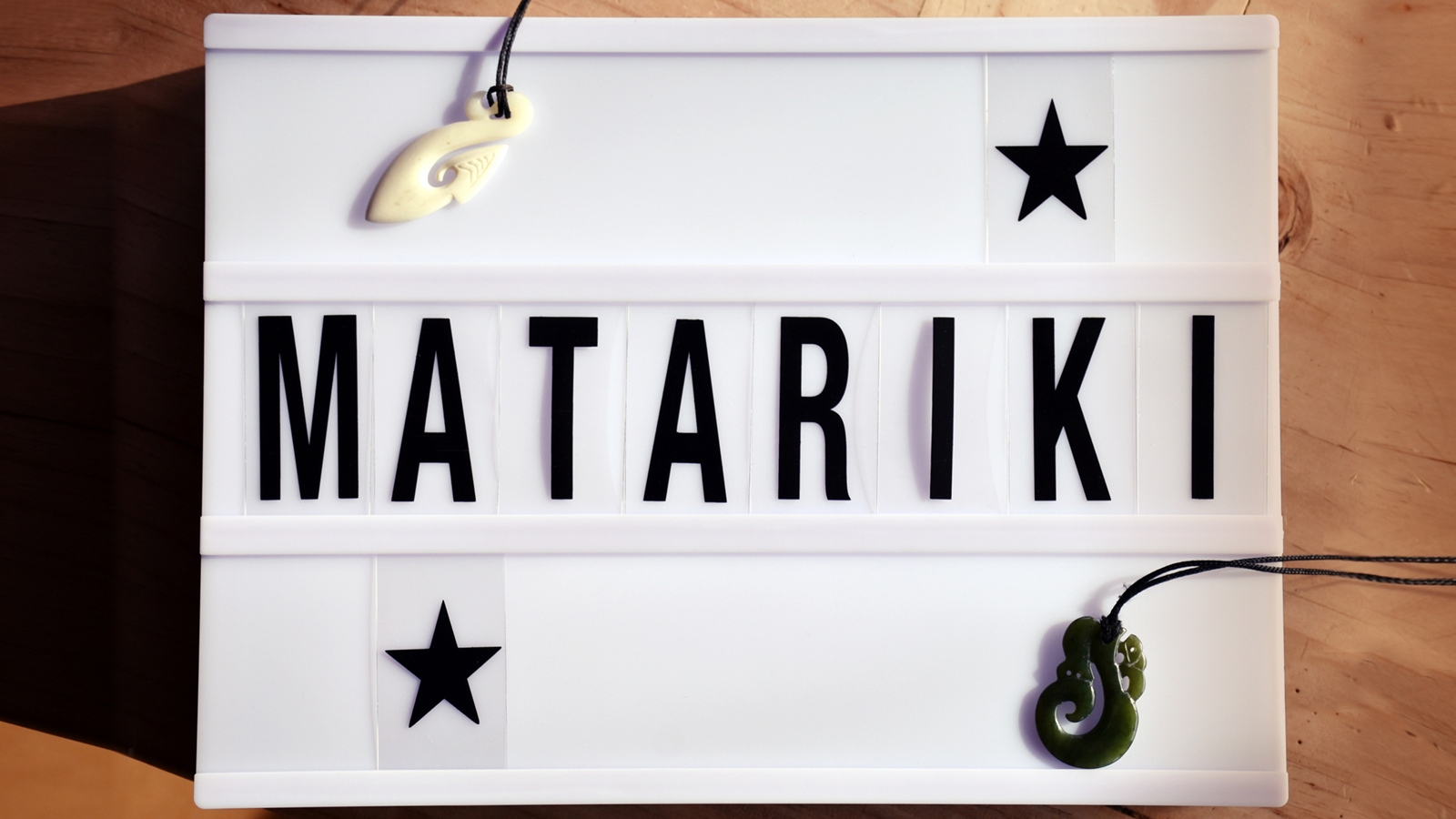
If you’re angling at a reason to shake off those mid-winter blues, Matariki (11-22 July 2023) could be the perfect antidote.
Best viewed before dawn, Matariki is a cluster of stars that appears in the night sky at this time of year, marking the end of the old lunar year in the Māori calendar, and the start of the new. Traditionally, it signals a time of celebration: the crops safely harvested and stored in the pātaka, giving friends and whānau the opportunity to come together and enjoy some much needed leisure time.
More than this, Matariki is also a time to reflect upon the year just past, acknowledge those we have lost, and prepare and plan for the future – the full cycle of life. And of course celebrate and have a good time.
Watch the stars
The Matariki star cluster appears in the early morning in New Zealand, and as one of the brightest in the sky is easily visible with the naked eye.
Just look northeast on the horizon shortly before sunrise and search for the distinctive line of stars that form Tautoru, or Orion’s Belt. Keep going north from here you’ll come across a small cluster of nine stars that are roughly as wide as Tautoru is long – you’ve found the Matariki stars, around 440 light years away.
As you might expect, this shining cluster is also well known in other places throughout the world. In English it is called the Pleiades, or Seven Sisters. In Japan they call it Subaru, literally ‘gathered together’. And in Hawaii it is known as Makali’i, the ‘eyes of royalty’.
But wherever Matariki appears, it has always been closely linked with seasonal changes, and especially planting, harvesting and hunting.
A higher purpose
For our Māori ancestors, astronomy was interwoven into all aspects of life. Tohunga would study the night sky to gain insight into the movement of the sun, moon, planets and stars, and consider how their behaviour affected the land, seas, lakes and rivers down here on earth. And thus the health and wellbeing of its people.
In the case of Matariki, the brightness of the stars when they appeared – the clearer and more defined each star was in the sky – the better the prospects for the year ahead. Each of the nine stars (or seven, depending on your viewpoint) was also given a name, and accorded meaningful properties.
What the Matariki stars mean
Each of the stars in the cluster has a distinct story and significance:
• Matariki – the ‘mother’ star, signifies reflection, hope, connection to the land and its people, along with their wellbeing.
• Waitī – associated with fresh waterways and the food sources they provide.
• Waitā – linked to the ocean and its bounty.
• Waipuna-ā-rangi – associated with the rain.
• Tupuānuku – linked to everything that grows in the soil to be harvested or eaten.
• Tupuārangi – associated with everything that grows in the trees, including fruits, berries and birds.
• Ururangi – associated with the winds.
• Pōhutukawa – associated with those who have died.
• Hiwa-i-te-rangi – the star associated with granting our wishes, and realising our hopes and aspirations for the coming year.
Source: Te Papa
Join in the festivities
Matariki and her six daughters, nine or seven stars, the debate continues. But that doesn’t mean you can’t enjoy this special time of year. Traditionally, festivities included lighting ritual fires, making offerings to the gods, and other ceremonies both to farewell the dead and celebrate life itself.
Those traditions continue today in many different forms, helping us celebrate this unique land and country where we live. The first public holiday for Matariki was held in New Zealand on Friday 24 June 2022. This year it falls on Friday 14 July, and you can join in the celebrations all around New Zealand with a rich, diverse range of performances and events.
To find out more, visit matarikifestival.org.nz, or search online for Matariki happenings in your local area. And make Matariki a true cause for celebration this year.
References:
https://www.matarikifestival.org.nz/
https://www.tepapa.govt.nz/discover-collections/read-watch-play/maori/matariki-maori-new-year
https://www.newzealand.com/nz/matariki/
https://nzhistory.govt.nz/classroom/contexts-activities/matariki
